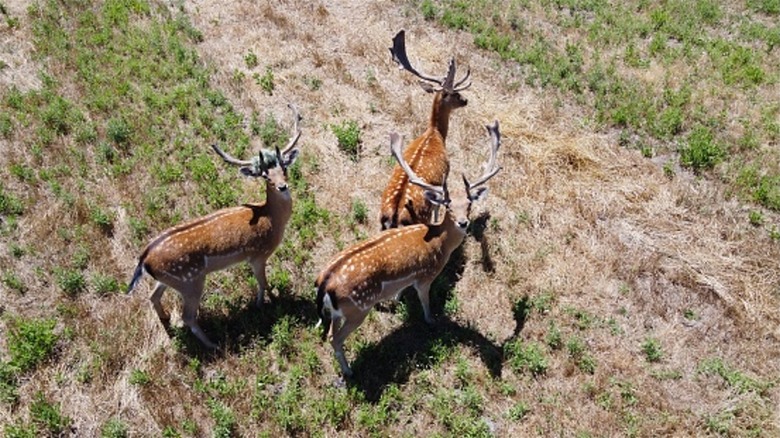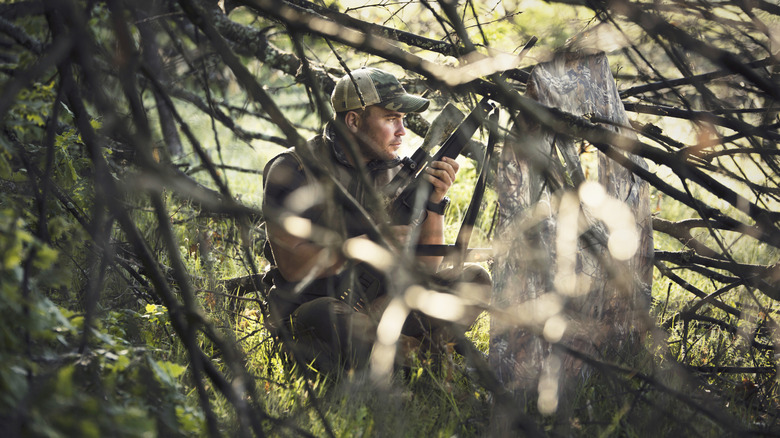
Many states don't allow a drone for hunting, but regulations vary, requiring some research on local laws to be sure. Some states, like Alabama, will allow drones for scouting, but not all states do. Kevin
Dodd, of the Alabama Department of Conservation, explained to the Montgomery Advertiser, "We feel that if you fly a drone over your game plot before you go out hunting, that's the same as scouting from a truck or ATV."
States like Texas outlaw sport hunting with aircraft, but do offer restricted drone use with an Aerial Management Permit. This permit authorizes drones for counting, photographing, and hunting of only authorized animals (nuisance creatures like wild hogs and coyotes), and must include a Land Owner Authorization.
If you hunt with a drone in places like Maine, you could be fined $100-$500, and it escalates to a Class E criminal offense if a kill occurs. Using a drone for hunting in Kansas, on state-owned or managed land, is a misdemeanor that includes fines or even jail time. Colorado is another state where you can get into trouble flying a drone, as it charges you with stiff penalties for violating local drone laws, ranging from $70 to $125,000. Heather Dugan of Colorado Parks and Wildlife clarified the law with KDVR News, "The bottom line is, if it's related to a hunt in any way, you can't do it." With all the cutting-edge technology packed into the coolest drones that money can buy, a dichotomy forms between those who view it as a helpful tool and others who label it unethical.
Read more: 10 Must-Have Smart Home Devices For Your Outdoor Spaces
Fair Chase And The Ethics Of Drones In Hunting

Fair chase is an approach to hunting that promotes sportsmanship and advocates against a lopsided advantage. It's a philosophy that has helped guide hunting practices for over a century. To those who employ this approach, utilizing something like a drone might go against the traditional spirit of hunting. Even other tech, like some Amazon gadgets for hunting season, might ruffle some feathers. Advocates for fair chase might argue that a drone specifically places success not on a hunter's individual skill, but squarely on technology, which eliminates an animal's natural capability to hide or flee.
On the other hand, there are times when drone use could be utilized for practical and arguably ethical reasons, such as recovery. Ideally, a shot takes the animal down quickly, but sometimes a mortally wounded deer manages to wander off. Even for skilled hunters, tracking an injured game animal can take a few hours or more. In the meantime, this deer could be suffering, and a quick drone flight might be able to spot the animal within minutes.
Unfortunately, there are several unethical practices that drones could enable. For example, spotting a bedded buck on foot and sneaking up for a good shot requires immense patience, whereas quietly navigating 50 yards might take a methodical few hours. Conversely, you can efficiently scout an entire property or section of wilderness with a drone, easily pinpointing prime locations such as bedding and feeding areas, thereby significantly reducing the hunt's complexity.
Want the latest in tech and auto trends? Subscribe to our free newsletter for the latest headlines, expert guides, and how-to tips, one email at a time.
Read the original article on SlashGear.











